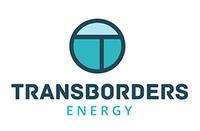Global Speakers

John Beever
Chair
CO2 Value Australia
Forum Chairperson
Topic:
Panel Discussion: Investments Are Pouring Into Carbon Capture Tech, But Challenges Still Remain
John Beever is Chair of CO2 Value Australia, a Canberra-based think tank which represents researchers, developers and users of Carbon Capture and Utilisation (CCU) technologies in Australia. John led the creation of CO2 Value Australia in 2019 to promote development and deployment of sustainable industrial solutions which transform captured CO2 into valuable products and to connect Australian industry with international CCU developments including through CO2 Value Australia’s partnership with CCU thought leader CO2 Value Europe.
Formerly a journalist and speech writer he became an Australian Government senior executive involved in industry regulation and policy. His last government appointment was as Chief Executive Officer of a national regulatory authority.
After leaving government service John Beever helped create and run a consultancy firm which helped Australian researchers and technology developers access government R&D support and grants. This led on to involvement with and investment in technology start-ups. John is also Chair of GreenMag Group Pty Limited which was one of the founders of Mineral Carbonation International Pty Limited a leading Australian CCU technology developer.

Dr. Matthias Raab
Chief Executive Officer
CO2CRC Limited
Forum Chairperson
Topic:
The Otway International Test Centre: Advancing CCUS Technologies
Dr Raab is recognized internationally as an expert in carbon capture, utilization and sequestration, and has frequently collaborated with leaders and experts in the global energy sector working towards a mix of technologies that will achieve zero net emissions. He has strategic and operational responsibility for the highly regarded Otway International Test Centre, the development of multi-million-dollar research programs, and the successful delivery of complex major research and infrastructure projects. Dr Raab’s 25+ year career has spanned academia, government, industry, and the not-for-profit sectors, as part of which he has secured funding for a range of multimillion-dollar, multi-disciplinary R&D initiatives. He currently serves as a member of the Australian School of Petroleum and Energy Resources advisory board and represented Australia on the International Energy Agency’s Greenhouse Gas R&D Programme, was the Chair of the CCSNET Scientific Advisory Committee, and a Member of the Australian CCS policy forum working group, which advises government on earning Australian Carbon Credit Units.

Richard Merzian
Director, Climate & Energy Program
The Australia Institute
Topic:
Pursuing Integrity In CCUS: The Current Trajectory Of CCUS In Australia For Climate And Emissions
Richie Merzian is the inaugural Climate & Energy Program Director at The Australia Institute. Richie is a former Australian Government representative to the UN climate change conference and worked at the Department of Climate Change and the Department of Foreign Affairs for almost a decade on both domestic and international climate and energy agendas.
While at the Australian Government, he was the lead negotiator on adaptation to the UN Framework Convention on Climate Change and helped coordinate the Green Climate Fund Board during Australia’s tenure as Chair. Richie helped co-found the Australian Youth Climate Coalition (AYCC) in 2006 and trained as a Climate Reality Leader in 2007 with former Vice President Al Gore.
Richie is currently on the Advisory Committee for the Climate Change Institute at the Australian National University (ANU). Richie has degrees in Law and Economics from Sydney University.

Tim Buckley
Director of Energy Finance Studies, Australia/South Asia
Institute for Energy Economics and Financial Analysis (IEEFA)
Topic:
Panel Discussion: Investments Are Pouring Into Carbon Capture Tech, But Challenges Still Remain
The Institute for Energy Economics and Financial Analysis (IEEFA) is a not for profit thinktank examining issues related to energy markets, trends and policies. The Institute’s mission is to accelerate the transition to a diverse, sustainable and profitable energy economy.
IEEFA’s Australia/South Asia Director of Energy Finance Studies, Tim Buckley, has 30 years financial markets experience, covering Australia, Asian and global equities. Tim is a top-rated financial analyst studying the electricity sector and highlights the technology and finance driven inevitability of a global transition towards a lower emissions system. This analysis extends to examine the risks to potentially stranded fossil fuel assets as well as the resulting opportunities for renewable energy, energy efficiency, renewable hydrogen, and other low carbon finance assets, both in Australia and from a global perspective.

Marcus Dawe
Chief Executive Officer
Mineral Carbonation International (MCi)
Topic:
How Mineral Carbonation International (MCi) Leverage World’s First Carbon Reactor Captured CO2 In Mineral Deposits And Then Stored In Rocks
Marcus Dawe is a CEO and serial tech entrepreneur based in Canberra, Australia. He focuses his activities on developing and supporting ventures that provide Australia with a global innovation edge. He wears multiple hats and known for his innovation mindset employing strategy, design and systems thinking. He builds and leads teams through several global initiatives in climate change and healthcare.
Marcus has been leading an initiative with Australian based MCi since 2007 that is developing technology to permanently and safely store billions of tonnes of CO2 using the Earth’s own carbon sink mechanism – mineral carbonation. He has secured continuous funding with Australian Governments’ and industry for its ongoing development including a world first pilot plant completed in 2018 and industrial demonstration plant underway in 2021 with a Commonwealth CCUS grant he secured for $14.6m in June 2021. He is leading MCi and its teams based in Newcastle and Canberra into the US$6T marketplace for carbon capture and utilisation (CCU) solutions.
Marcus is a founding board member and adviser to SwoopAnalytics.com the leading collaboration analytics for Microsoft Teams and Yammer. Marcus has had success with his many of his tech ventures. Most notably eDIME Internet Agency which he founded and sold to Computer Sciences Corp (CSC) in 2000, 2 weeks before the dot-com crash. He was a pioneer in the development of Australian Governments’ internet presences having developed the first Australian Government Home Page in 1994 and then communications strategies and websites for over 25 Federal Government departments and agencies from 1994-2000 including the complete outsource and management of Prime Minister, Australian Electoral Commission, Defence Intranet, DMO, ASIO, ATSIC, DVA, NHMRC, Medibank and AIHW.
Marcus was co-founder of Revolution CD, a second hand music and software store chain in Australia in 1994 and still running today. His diversified interests range from cleantech, digital health, complex data analytics, mentoring, and electronic music and promoting the Canberra Innovation Network (CBRIN) where he is Entrepreneur in residence. His board experience is diverse. He is Chair of several organisations and advises on government committees, boards of startups, scientific & non-for profit boards & committees. He is a graduate of the Australian Institute of Company Directors (GAICD).

Eduardo Robaina
Executive Vice President Operations
Add Energy
Topic:
Panel Discussion: Investments Are Pouring Into Carbon Capture Tech, But Challenges Still Remain
Eduardo joined Add Energy in September 2015 as VP – Petroleum Engineering. He holds a B.E. (Mechanical) in Engineering Mechanical from the Universidad Metropolitana, Caracas, Venezuela. Eduardo has over 20 years of extensive operational experience as well as project development across the lifecycle of the energy sector
Eduardo’s career has evolved from being an accomplished Senior Wells Engineer to leading a multifaceted private engineering consultancy as the Acting EVP of Operations for Add Energy. He has been able to demonstrate sound commercial acumen and broader business understanding that has enabled successful transition from performing purely technical engineering work to now servicing a range of top tier clients in the Petroleum Sector and covering a broad spectrum of general management activities from contract negotiation, staffing management, business development, profitability and revenue management, client and stakeholder management and project execution.
Recently, Eduardo and his team, have developed an assessment tool, to implement traditional oil and gas integrity standards into the fast-growing Carbon Capture emission reduction sector, by providing a transparent well construction and compliance process, able to assess legacy fields or support new developments looking to disposed Carbon.
Eduardo lives in Perth, Western Australia, with his wife and 2 kids, and in his free time, he supports his local Rugby Union Club as the Director of Rugby for the Junior program.
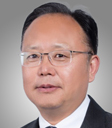
Dr. Wang Xingjin
Executive Director
Denison Gas
Topics:
- Panel Discussion: Investments Are Pouring Into Carbon Capture Tech, But Challenges Still Remain
- Global CCUS Case Study: Yanchang CCUS And Potential CCUS In Denison Trough Gas Field
Dr Xingjin Wang is co-founder and executive director of Denison Gas, which is a gas producer possessing gas fields in the Bowen Basin Australia. As an entrepreneur and reservoir engineer, Dr Wang has more than 30 years of international experience in petroleum exploitation and carbon emission mitigation. He is currently an Honorary Professor at the University of Queensland. He was General Manager of Arrow Energy in the duration from 2007 to 2010, involving CSG development in Surat Basin and Bowen Basin. In the duration from 2011 to 2015, he as a foreign technical advisor to Director General of Gazprom DK (Gazprom is the largest energy company of Russia) helped Russia to establish the first greenhouse gas emission mitigation system in the Siberia region. The gas emissions from the coal mines previously vented to the atmosphere, were reduced significantly and the produced gas has been used for power generation. The technology developed from the project has subsequently been promoted widely in Russia. ln addition, he facilitated cooperative project between the China University of Mining Technology, Beijing, the Yangchang Oil Company, and the University of Queensland. This project involves modelling and subsequently injecting carbon dioxide into sandstone oil reservoir in the Ordos Basin in China. This work has proved successful to date resulting in an 8 percent increase in oil Production and permanent storage of the CO2. Dr Wang was director and now is competent person of ASX listed company, Pilot Energy. He gives full support to Pilot Energy in establishing world class wind and solar energy projects in South West offshore and Mid West onshore, the Perth Basin, WA.
Dr. Xingjin Wang holds a Master degree in Petroleum Engineering from the University of New South Wales and PhD degree in Applied Geology from the University of New South Wales
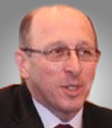
Peter Sallans
Technical Director
Zetta New Energy
Topic:
Panel Discussion: Investments Are Pouring Into Carbon Capture Tech, But Challenges Still Remain
Peter has extensive experience in consulting, senior management and project management roles. He has worked in the unconventional gas industry in Australia, Indonesia, China, and the United Kingdom and has a sound understanding of the technical, economic, planning and regulatory challenges involved in accessing carbon-based energy sources and in seeking to effectively sequester the by-products.
Peter has a particular interest in hydrogen as a key fuel for a low carbon future. Gasification of coal and the re-forming of natural gas close to source provide the best opportunity for efficient carbon sequestration, and conversion to hydrogen or a hydrogen carrier allows us to make use of that produced energy while maintaining a small carbon footprint. Hydrogen also allows for the dual feed of energy from renewables and carbons into the same energy network.
As Technical Director at Zetta New Energy, Peter provides project management and consulting services in relation to renewable energy projects as well as for unconventional gas production and CCUS.
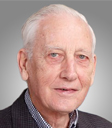
Prof. Peter J Cook CBE
Advisor
Advent Energy
Topic:
The Advent Energy Sea Blue Well: Assessing A CCS Prospect
Professor Peter Cook is an eminent Australian and international earth scientist. He is a leader in the development and application of carbon capture and storage (CCS) technologies and has published more than 30 papers and articles on the topic, including the books “Clean Energy Climate and Carbon” and “Geologically Storing Carbon” and was a Co-ordinating Lead Author of the IPCC Special Volume on CO2 Capture and Storage. He first drew attention to Australia’s CCS opportunity more than 20 years ago, then going on to establish national CCS programmes and research facilities through the Petroleum CRC and the Cooperative Research Centre for Greenhouse Gas Technologies (CO2CRC). In 2011, the University of Melbourne established the Peter Cook Centre for CCS Research
Professor Cook holds the degrees of BSc (Hons), MSc, PhD and DSc and has received a number of Australian and international awards and honours in recognition of his contribution to science and is a Fellow of the Academy of Technological Sciences and Engineering. He has held academic and research positions in the UK, Australia, France and the USA and senior executive and CEO positions at the Bureau of Mineral Resources (now GA), the British Geological Survey and two Cooperative Research Centres. and has provided advice to industry and Governments on CCS. He has also chaired major reviews of unconventional gas.
Currently he is a Professorial Fellow at the University of Melbourne, CO2CRC Distinguished Scientist, a member of Advisory Boards and Consultant to Companies and Governments.

Sophia Hamblin Wang
Director
CO2 Value Australia
Topics:
- Future Of CO2 Conversion Tech In Reproducing Industrial Products With CO2 In A Transition Towards A Green Economy
- Video Tour: MCi Pilot Plant – CO2 Utilization
Sophia Hamblin Wang is the Chief Operations Officer of Mineral Carbonation International, a technology platform that transforms carbon dioxide into building materials and other valuable industrial products.
Sophia is also a member of the ACT Climate Change Council, Curator of the Canberra Hub for the Global Shapers, and a Sessional Lecturer at University of Sydney, where she co-lectures and co-designed the undergraduate course International Business in Practice, now a cornerstone course for undergraduates in international business.

Max Temminghoff
Manager
CSIRO Futures
Topic:
CO2 Utilisation Roadmap: How Emerging CCU Technologies Could Be Used To Support Growth Opportunities In Australia
Max Temminghoff is a Manager with CSIRO Futures, the strategic advisory and foresight arm of Australia’s national science agency. Max has extensive experience working closely with researchers and industry leaders in the Energy sector to understand emerging technologies and develop strategies to encourage their uptake.
Max contributed to producing the CO2 Utilisation Roadmap, which examined how Australia can capitalise on the CCU opportunity by scaling the industry in a coordinated manner. Prior to this he worked across a variety of public and private hydrogen strategy consulting projects, including the Opportunities for Hydrogen in Commercial Aviation report, analysing how the aviation sector can decarbonise using hydrogen and CO2, and the National Hydrogen Roadmap.
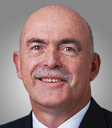
Mick Buffier
Group Executive, Sustainable Development & Industry Relations, Global Coal Assets
Glencore
Topic:
Glencore’s Carbon Transport & Storage Company (CTSCo) Project: Australia’s Most Advanced Onshore CCUS Project Capturing CO2 From A Coal-Fired Power Station And Permanently Storing The CO2 Deep Underground
Mr Buffier has over 40 years’ experience in the coal mining industry in Australia. He holds a Bachelor of Civil Engineering (Hons) from Sydney University and a Master of Business Administration from Newcastle University. Mr Buffier has held various positions throughout his career, including Mining Engineer, Senior Mining Engineer, Production Manager, Mining Manager and General Manager.
He joined Glencore Coal in 2001 as the Director of Open Cut Operations and in 2002 held the role of Chief Operating Officer of the company’s coal mining operations in NSW. In 2009, Mr Buffier was appointed Group Executive – Sustainable Development and Industry Relations, across the company’s global coal operations.
He is a former Chairman and current Deputy Chairman of the NSW Minerals Council, as well as a ministerial appointee to the NSW Coal Innovation Council. He is a Director of Low Emission Technology Australia (LETA), Australian National Low Emissions Coal (ANLEC) R&D Limited and CO2CRC Limited. On an international level, Mr Buffier is a past Chairman and current Vice Chairman of the World Coal Association, an Associate of the IEA Coal Industry Advisory Board and a peer reviewer of the IEA World Energy Outlook.

Matthew Holding
Study Manager, deepC Store Project
Transborder Energy
Topic:
Achieving The First Floating CCS Hub In Australia And Asia-Pacific
Matt has more than a decade of technical and leadership experience in government relations, and health, environment and safety (HES) management. Matt’s career has included experience within EPCM contractor organizations, IOCs and government regulatory bodies. These include Government Approvals Team Lead for Chevron Australia, Environment Specialist for the National Offshore Petroleum Safety and Environmental Management Authority (NOPSEMA) and Regulatory Approvals and Compliance Coordinator for Clough Projects.
With an intimate understanding of HES legislation, including the regulatory requirements for HES risk assessment and mitigation, Matt provides clear guidance and leadership within HES and government relations disciplines in the Australian offshore petroleum industry.
Matt has a Bachelor of Science with distinction, majoring in Environmental Biology, and is a member of the National Environmental Law Association and the International Association of Impact Assessment.

A/Professor Akshat Tanksale
Associate Professor & Theme Leader for the Carbon Capture, Conversion and Utilisation, Woodside-Monash Energy Partnership
Monash University
Topic:
Carbon Dioxide Valorisation Using Liquid Phase Catalysis
A/Professor Akshat Tanksale completed his PhD at The University of Queensland in 2008 examining nanomaterials / chemical reaction engineering. This was followed by a postdoctoral position at UQ examining the conversion of biomass to liquid fuels and chemicals and hydrogen storage. Joining Monash University in 2011, A/Prof Tanksale leads the Catalysis for Green Chemicals group where his interest is in the field of heterogeneous catalysis for conversion of biomass to fuels and chemicals using nano-materials. He is currently the Theme Leader for the Carbon Capture, Conversion and Utilisation theme of the Woodside Monash Energy Partnership. A/Prof Tanksale is the immediate past Chair on the Joint Victorian Chemical Engineers Committee (JVCEC) under the common umbrella of IChemE and Engineers Australia.

Rosie Johnstone
Director
Full Circle Carbon
Topic:
CO2 Geological Storage: Screening & Maturation Of Marketable Volumes
Rosie Johnstone is the Director of Full Circle Carbon – based in Perth, Australia. She has been active in both oil and gas exploration and CCUS for 20+ years across Australia, Asia-Pac, UK. Until recently, Rosie was Shell’s focal point for CCS sink identification in Australia/Asia-Pac region, from high level screening to injection site planning. Key project areas include the Petrel Sub-Basin (with CSIRO /National Geosequestration Laboratory on behalf of Australia’s Dept of Industry, Innovation and Science), analysis of Japan-Korea CCUS opportunities, Australia wide CCS hub analysis and Asia-Pac sink screening.

Steven Marshall
Operations Director - CarbonNet
Department of Jobs, Precincts and Regions
Topic:
The CarbonNet Project
Steve Marshall is CarbonNet’s Operations Director. Steve has worked with the CarbonNet team for over three years and successfully led the safe, effective delivery of CarbonNet’s offshore appraisal activities across 2017-2020, including drilling Australia’s first offshore appraisal well for CCS. He is responsible for the technical design for the transportation and storage assets.
Originally from Scotland, Steve Marshall is a Mechanical Engineer and has had an impressive 15 year career in the international oil and gas industry. Prior to joining CarbonNet, Steve worked with CO2CRC developing the Otway Stage 3 R&D Project.

Prof. Mark Howden
Director of the Institute for Climate, Energy & Disaster Solutions
The Australian National University
Topic:
The Climate Challenge – The IPCC View
Professor Mark Howden is Director of the Institute for Climate, Energy & Disaster Solutions at The Australian National University.
He is also an Honorary Professor at Melbourne University, a Vice Chair of the Intergovernmental Panel on Climate Change (IPCC) and is the Chair of the ACT Climate Change Council. He was on the US Federal Advisory Committee for the 3rd National Climate Assessment, was a member of the Australian National Climate Science Advisory Committee and contributes to several major national and international science and policy advisory bodies.
Mark has worked on climate variability, climate change, innovation and adoption issues for over 30 years in partnership with many industry, community and policy groups via both research and science-policy roles. Issues he has addressed include agriculture and food security, the natural resource base, ecosystems and biodiversity, energy, water and urban systems.
Mark has over 420 publications of different types. He helped develop both the national and international greenhouse gas inventories that are a fundamental part of the Paris Agreement and has assessed sustainable ways to reduce emissions. He has been a major contributor to the IPCC since 1991, with roles in the Second, Third, Fourth, Fifth and now Sixth Assessment Reports, sharing the 2007 Nobel Peace Prize with other IPCC participants and Al Gore.

Brett Rogers
Director
Elemental Group
Topic:
CCUS In New Zealand – A 2021 Stocktake
Brett is a director at Elemental Group which he co-founded in 2012 to focus on providing local subsurface expertise for oil and gas clients. Since that time the company has transitioned into renewable energy, CCUS and decommissioning. He started his career with Shell in New Zealand drilling development wells for the major gas development Maui-B. He spent time working on the Dutch oil fields around Rotterdam with NAM before returning to New Zealand. After Shell he became offshore asset manager for Todd Energy, delivering the Pohokura and Maari field developments. In addition to his petroleum subsurface skills, his focus areas are transitioning businesses to meet our Paris Accord obligations through carbon capture, wind power, solar energy and starting new businesses. He has been active in lobbying government for policy on CCUS in NZ and is lead author of a study reviewing carbon capture and storage in New Zealand.
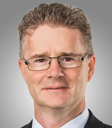
Andrew Okely
General Manager, Sustainable Processing and Commercial
Calix Limited
Topic:
Calix Case Study: Decarbonizing Cement By Scaling Its CO2 Mitigation Technology For Cement And Lime
Andrew Okely joined Calix in March 2012 and is currently General Manager Sustainable Processing and Commercial. With a passion to technology commercialisation Andrew has enjoyed a career spanning research, design and sales in mineral and metal processing technologies. Andrew joined Calix after a 17-year career at Outotec (now Metso-Outotec) where his most recent role was Director, Sales and Marketing for the South East Asia Pacific region, in addition to being a member of the executive management team.
Since joining Calix Andrew has contributed to the development and commercialisation pathway of the core Calix technology which has application in a variety of industries including Cement and Lime manufacture, refractory production, lithium salts for batteries and Clay calcination. In all cases the Calix Technology is being applied to tackle the CO2 footprint of the existing process whilst simultaneously offering other benefits to improve the existing processing techniques.
Andrew holds a Bachelor of Engineering (Metallurgical) degree (Royal Melbourne Institute of Technology University), a Postgraduate Certificate in Marketing and a Master of Business Finance (University to Technology, Sydney).

Adam Vincent
General Manager – Lime Decarbonisation
Calix Ltd
Topic:
Virtual Tour: Calix’s LEILAC Plant In Lixhe, Belgium – CO2 Capture From Lime And Cement
Adam joined Calix in July 2010 after 15 years in technical and operations management. He has overseen the building and commissioning of Calix’s first three demonstration and commercial processing facilities in Australia and Europe. He was resided in the UK 2016-2018 while managing the LEILAC 1 project and returned to Australia in the role of General Manager – Research and Development.
In January 2021 Adam moved into the role of General Manager – Lime decarbonisation, where he is responsible for the commercial exploitation of the Calix technology into the lime segment.
Adam holds a Bachelor of Chemical Engineering degree (RMIT University) and a Masters of Engineering Science (Monash University).
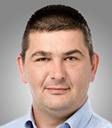
Cristian Bolda BCSEng (Mech), PMI, MEIAust
General Manager, Operations
Leigh Creek Energy Limited
Topic:
Leigh Creek Energy CCUS Case Study
Cristian is an Executive General Manager with 18 years’ experience in the resources, energy and power sectors. He has successfully led business lines and cross-functional teams across multiple geographic locations both in Australia and internationally. Cristian during his career worked with Chevron, Origin/ConocoPhillips, Petrofac/ZADCO(Exxon/ADNOC), OMV/Petrom, Rompetrol/KazMunayGas, Ramboll.
Cristian has a proven track record for driving operational and project excellence and generating business growth. As an Executive General Manager, Cristian has extensive experience in engineering and construction, strategy development and implementation, contract negotiation and execution along with client and stakeholder management and safely operating the assets. He was involved along his career in Oil and Gas, Coal Seam Gas; Pipeline, Compression, Water Treatment, Power plants, HV Power Transmission & Distribution, airports and infrastructure.

Noreen Byrne MSC Mgt, BCS Geol
General Manager, Sustainability & People
Leigh Creek Energy Limited
Topic:
Leigh Creek Energy CCUS Case Study
Noreen is a Senior Manager with over 20 years’ experience across several industries including mining, defence, health, media and IT.
Prior to moving into the field of People Resources, Noreen started her career as a Geologist in exploration and underground mining in the goldfields.
Noreen worked across established organizations and entrepreneurial ventures advising them through the stages of creation, growth, and stabilization. Her breadth of experience across diverse industry groups has provided an exceptional platform to link people and sustainability strategies to business success.
As LCK GM Sustainability & People, Noreen is leading LCK’s transformation ESG program through developing effective leadership, differentiated talent models, sustainable business models, cultural engagement, environmental excellence and strong governance.

Jeremy Stone
Non-Executive Director & Advisor
J-Power Latrobe Valley
Topic:
The Critical Role Of CCUS In Delivering Our Clean Hydrogen Project In Gippsland
Jeremy is a Non-Executive Director, global executive and advisor with over 30 years of experience leading businesses and in the delivery of major infrastructure projects.
He has held a variety of positions, including Regional Director for Asia and Group Manager of Innovation & Digital for a 10,000 strong global professional services company.
He lived and worked in Asia and the UK for 14 years and has also delivered projects in the US, Middle East, Australia and China. He is a Director of the Australian subsidiary of J-Power, one of Japan’s largest utility companies and part of the Hydrogen Energy Supply Chain (HESC) consortia.
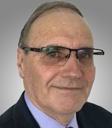
A/Prof. Barry Hooper
Managing Director
UNO Technology
Topics:
- Panel Discussion: Investments Are Pouring Into Carbon Capture Tech, But Challenges Still Remain
- UNO Tech/KC8 Capture Technologies – Reducing CO2 Emissions From Industrial Sources
Barry Hooper is Managing Director and founder of KC8 Capture Technologies Ltd and UNO Technology P/L (www.unotech.com.au), start-up companies commercialising low-cost environmental technologies to reduce industrial CO2 emissions.
Prior to that Barry was the Chief Technologist of the CO2CRC from 2003 to 2014 involved in all aspects of CCS with emphasis on carbon capture. In 2010, he was appointed as a Science Leader at ANLEC R&D and continues in that role today.
He has a BE (Hons) in Chemical Engineering from the University of Queensland with over 40 years’ experience in design and operations across the international oil, gas and chemical processing industries. Before joining the CO2CRC he was Corporate Engineering and Manufacturing Manager for Orica. He is a Fellow of the Institution of Chemical Engineering and holds an Honorary Fellowship (Associate Professor) at the University of Melbourne.

Dr. Weibin Liang
Senior Scientist & Postdoctoral Research Associate
University of Sydney
Topic:
Reducing CO2 Emissions In Manufacturing Processes And Converting CO2 Into Commercial Products Through Nanocatalysis
Dr. Weibin Liang received his Ph.D. degree focused on porous materials in the School of Chemistry at the University of Sydney (2016). Subsequently, he moved on to carry out postdoctoral research at KAUST and Adelaide for the research of CO2 capture and conversion. In 2020, he came back USyd as a senior scientist in Prof. Jun Huang’s group and Sydney Nano CO2Zero Grand Challenge. He currently holds an Australian Research Council Discovery Early Career Research Award. His research interests focus on the design and development of porous materials in large-scale for highly efficient CO2 capture and catalytic conversion. Our group has patents and demo reactors for CO2 capture and utilisation, carbon-free H2 production, sustainable ammonia synthesis, plastic-to-fuels, et.al.

Dr. Louise Keyte
Director - UTS-Boral Centre for Sustainable Building & General Manager – Innovation
Boral
Topic:
Re-Carbonation Technology Will Enable Permanent CO2 Emission Reductions In This Decade
Co-director of the UTS-Boral Centre for Sustainable Building, and General Manager – Innovation at Boral, Dr Louise Keyte, has more than 20 years’ experience in research, development and commercialisation for the construction industry spanning academia, start-ups, and industry. Dr Keyte leads Boral’s Innovation group in Australia, which develops new products and solutions for customers and is one of the cornerstones of Boral’s vision of achieving performance excellence through innovation. Dr Keyte has developed and commercialised new sustainable products and solutions for the construction industry including the patented ZEP technology behind Envisia low carbon concrete and is passionate and committed to delivering innovative solutions to actively reduce the CO2 footprint of the construction industry. Her current primary focus is on the development and scale of emerging low carbon binder technology and CCUS for the construction industry.

Nikki Accornero
Community and Stakeholder Engagement Manager
CTSCo Pty Ltd - A Glencore Company
Topic:
Glencore’s Carbon Transport And Storage Company (CTSCo) Surat Basin CCUS Demonstration Project
Nikki is leading communication and stakeholder engagement specialist with more than 25 years’ experience. Over her career she has overseen some of Australia’s largest stakeholder engagement teams working on projects valuing more than $24 billion. Working extensively across several sectors, Nikki has concentrated her stakeholder engagement expertise across resources, low emissions, and infrastructure for most of her career. In addition to her Australian experience, Nikki has also worked internationally on some of the world’s largest mining projects, in particular the Philippines and in the Asia Pacific region.
Nikki has been working on the CTSCo project for a decade where she has developed and delivered the community and stakeholder engagement program. In addition to her post graduate qualifications, she holds an Advanced Certificate in Engagement with the International Association of Public Participation (IAP2).

Greg Leamon
Geoscientist & Consultant
Topic:
Standards & Regulations Of CO2 Storage Workshop
Greg is a geoscientist and engineer. He has worked as a seismic geophysicist and manager for petroleum exploration companies, in university research, and has been an advisor to various international organisations and governments.
Greg started work on carbon dioxide capture, transportation, and geological storage in 2003, as a research engineer at the University of NSW, where he developed integrated techno-economic models and screened CCS projects across Australia for the CO2CRC. In 2007, he moved to Canberra to work for Geoscience Australia where he started several national GHG monitoring projects and provided technical advice to the Australian Government on development of Australia’s offshore regulatory regime for geological storage of greenhouse gases. Greg represented Australia in negotiations at UNFCCC COP meetings in Durban, South Africa (2011), and Doha, Qatar (2012), where CCS technologies were finally approved as an emission reduction technology under the Kyoto Protocol. He was then appointed to the UNFCCC’s CCS Working Group to provide ongoing advice on CCS methodologies and was a member of the European Union’s SiteChar Advisory Panel on Regulation (of CCS projects). Greg also had the good fortune of mentoring a number of senior scientists from China’s Ministry of Environmental Protection (MEP) when they were drafting their national environmental regulations for CCS projects.
Greg is now semi-retired, but as a member of Standards Australia’s mirror committee on CCS, Greg continues to collaborate with CCS experts from around the world to develop international standards for CCS, specialising in quantification and verification, risk assessment and geological storage.
Greg is currently project leader for a new Standards Australia project: Technical Specification 5373 Carbon dioxide capture, transportation and geological storage (CCS) – quantification and verification of emission reductions.










